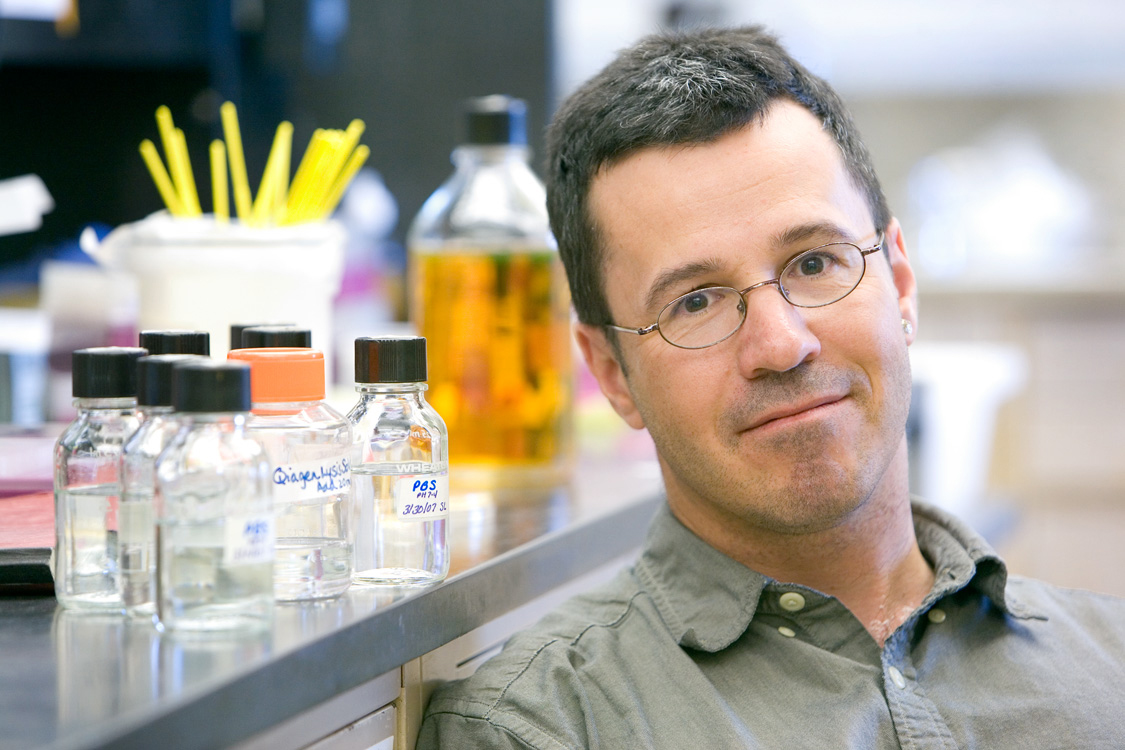Cornell to fight for food safety as CDC Center of Excellence
By Krisy Gashler

Cornell University and the New York State Department of Health have been selected to lead the nation’s newest Integrated Food Safety Center of Excellence as part of a joint venture to strengthen foodborne illness surveillance and investigations.
The Cornell-New York bid won a competitive process run by the Centers for Disease Control and Prevention (CDC). The center is the sixth in the country and will support food safety response for 11 states in the Northeast.
Centers of Excellence in Colorado, Florida, Minnesota, Oregon, Tennessee and now New York assist local, state and federal health officials respond to foodborne disease outbreaks by providing training, technical assistance and collaboration.
Dr. Martin Wiedmann, the Gellert Family Professor in Food Safety, will co-direct the new center, along with Andie Newman and Shelley Zansky of the state health department.
“The major issue these centers try to address is making sure that, at the state level, there’s appropriate expertise to detect foodborne disease outbreaks, trace them back to the source, and then use that information to prevent future outbreaks,” Wiedmann said.
The program partners state health departments with academic centers to take advantage of the research, educational and technical expertise of a university like Cornell.
“Together with Cornell University, the department is going to lead this regional effort to improve food safety and reduce the threat we face from foodborne illnesses,” said Dr. Howard Zucker, state health commissioner. “By pooling our resources and talents, we’ll be better equipped to take on the challenges that occur in an outbreak and be better able to prevent foodborne illnesses altogether.”
Wiedmann said he expects Cornell to train local health officials on the implementation of cutting-edge food safety tools, some of which have only existed for a few years. Genome sequencing, for example, can identify the exact bacteria causing a foodborne illness.
Historically it has proven difficult to trace the source that leads to an outbreak. Wiedmann explained that if three people in different states became ill it would typically be difficult it determine whether those people contracted the disease from the same food.
“Now with genome sequencing, we can see that if the bacteria from these three people are identical, then it suggests that they got sick from the same source,” he said.
With that information, experts can determine the foods those people consumed, helping to pinpoint the specific source.
“If we can find that food source, we can detect an outbreak with only three or four cases, rather than dozens or hundreds. We can prevent more people from getting sick,” Wiedmann said.
The CDC began establishing Integrated Food Safety Centers of Excellence in response to the Food Safety Modernization Act of 2011. That law aimed to shift regulators’ focus from responding to outbreaks to preventing them, and was “the most sweeping reform of our food safety laws in more than 70 years,” according to the CDC.
Congress passed the law in the wake of multiple high-profile foodborne disease outbreaks in the 2000s, including outbreaks from E. coli in bagged spinach, hepatitis A in green onions, and salmonella in peanut butter and eggs.
The CDC estimates that each year 48 million Americans get sick from foodborne diseases, hospitalizing 128,000 and killing 3,000 people.
“By sharing food safety data and information to improve practices, we can build capacity throughout the food safety system to detect and investigate outbreaks to stop disease spread and learn how to prevent the next outbreak,” Wiedmann said.
Another purpose for the Centers of Excellence is to bring together experts in a variety of fields, all of which play a role in ensuring a safe food supply. Those fields include epidemiology, environmental health, laboratory science, information technology, public health quality improvement and food safety science.
Krisy Gashler is a freelance writer for the College of Agriculture and Life Sciences.
Media Contact
Get Cornell news delivered right to your inbox.
Subscribe